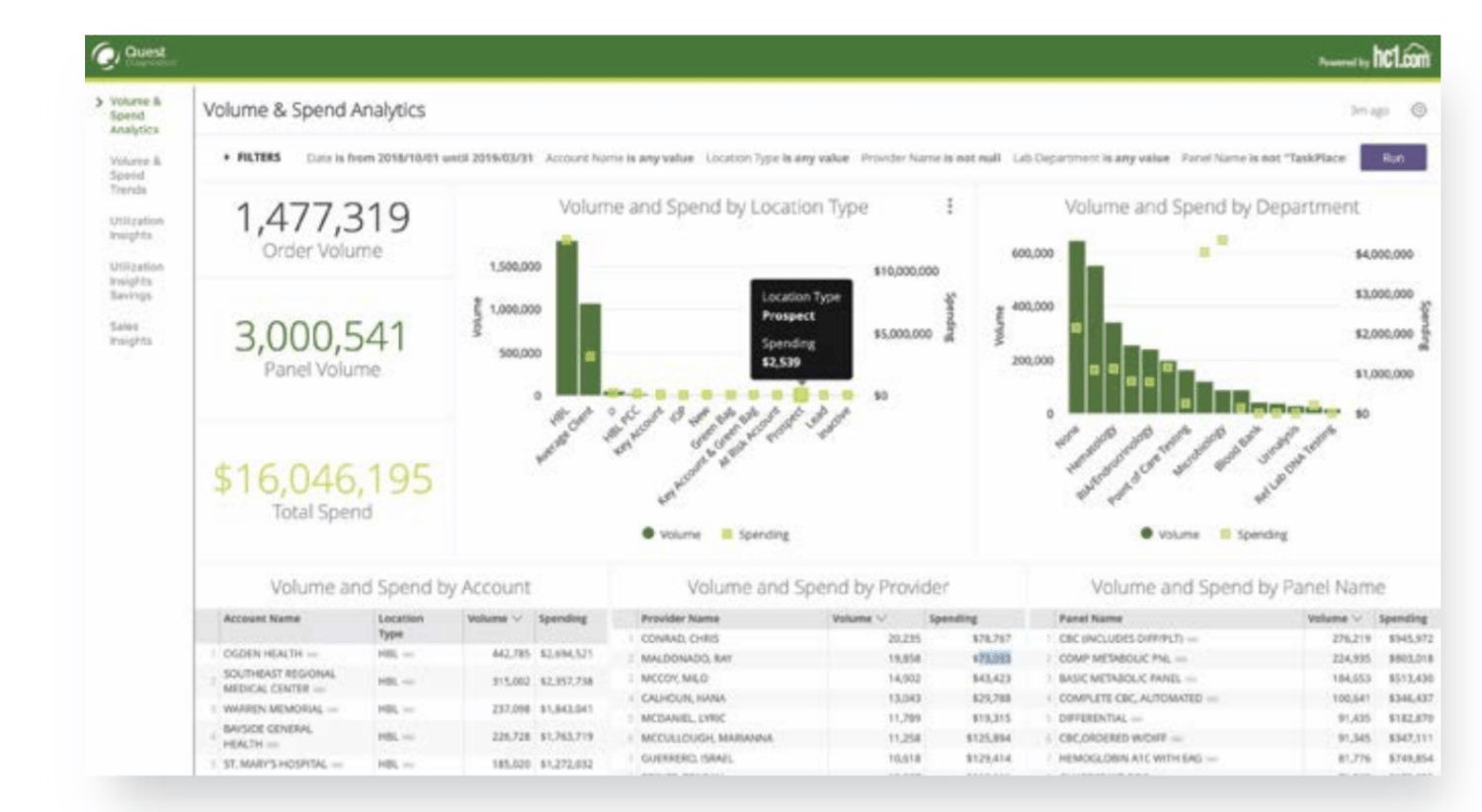
– Quest Diagnostics and hc1 collaborate to unveil Quest Lab Stewardship powered by hc1, an innovative new service that employs machine learning to harmonize laboratory testing.
– Quest Lab Stewardship enables progressive health systems to help improve patient care through better laboratory utilization.
– Quest Lab Stewardship integrates in real-time with enterprise systems and leverages hc1’s machine learning capabilities to ingest, organize and normalize lab data, alleviating the time and effort of manual data gathering and analysis.
Quest Diagnostics, a provider of diagnostic information services, and hc1, the bioinformatics leader in precision testing has unveiled Quest Lab Stewardship powered by hc1, an innovative new service that employs machine learning to harmonize laboratory testing across health systems in order to help optimize laboratory test utilization.
The Bigger Picture
Healthcare system wastes around $765 billion a year, due to factors such as unnecessary or inefficiently delivered services as well as missed prevention opportunities, according to the National Academy of Medicine. Although laboratory testing reflects only about 2-3% of overall health care costs in the United States, ordering lab tests is healthcare’s single highest-volume activity.[ii] Under-and overutilization* of lab tests can adversely affect clinical decisions, such as by prompting unnecessary or delayed procedures to address missed diagnoses.
Quest Lab Stewardship is the result of a strategic collaboration between Quest and hc1 focused on improving costs and clinical impact of lab testing, in- and out- of hospital settings. In recent years, health systems and hospitals have implemented “test utilization” programs to identify patterns in lab ordering trends. However, these programs often require time-consuming manual uploads of data or use platforms that cannot pull from disparate enterprise systems or provide real-time test ordering guidance.
Quest Lab Stewardship Features
Quest Lab Stewardship is designed to eliminate the limitations common to these programs. It integrates in real-time with enterprise systems and leverages hc1’s machine learning capabilities to ingest, organize and normalize lab data, alleviating the time and effort of manual data gathering and analysis. It also provides a framework for lab directors and hospital administrators to consult with medical staff to identify areas of concern and implement compendium updates and order-prompting based on selected clinical guidelines.
Additional features of Quest Lab Stewardship powered by hc1 include:
Real-time enterprise system integration and data organization across the electronic medical record (EMR) and laboratory information systems (LIS) systems, enabling rapid identification of problematic utilization patterns while driving proactive intervention.
Creation of a system-wide normalized test compendium to remove the confusion of having multiple names for the same test across multiple compendia, enabling clear and precise reporting.
Intuitively organized healthcare data, allowing leadership to analyze utilization trends for particular locations, providers, departments, and tests.
Built-in, nationally recognized medical laboratory guidelines to help lab stewardship committees design and implement real-time test order prompting linked into existing enterprise systems and workflows.
Why It Matters
“Lab stewardship is about more than lab testing and lowering costs of over testing. It’s really about helping health systems to use lab services efficiently to deliver appropriate care while preventing the downstream consequences from unnecessary, costly procedures,” said Lee H. Hilborne, MD, MPH, DLM (ASCP), Senior Medical Director, Medical Affairs, Quest Diagnostics and Chair of the American Society for Clinical Pathology’s Effective Test Utilization Subcommittee (Choosing Wisely). “We expect the Quest- hc1 solution will improve quality and care across a wide swath of the nation’s healthcare system that already refers their advanced diagnostic services to Quest.”
